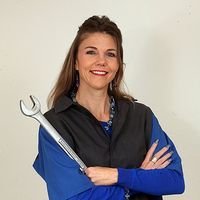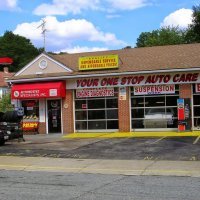-
Posts
4,879 -
Joined
-
Last visited
-
Days Won
451
Joe Marconi last won the day on April 11
Joe Marconi had the most liked content!
Business Information
-
Business Name
Marconi Consulting, LLC
-
Business Address
10 Powderhorn Road, Patterson, New York, 12563
-
Type of Business
Auto Repair
-
Your Current Position
Shop Coaching
-
Automotive Franchise
None
-
Logo
-
Banner Program
Tech-Net
-
Participate in Training
Yes
-
Certifications
Automotive Management Institute, ASE Master Techncian, L1, Certified Management Trainer
Recent Profile Visitors
106,021 profile views
Joe Marconi's Achievements
-
When speaking to shop owners, it still appears that many are still looking to hire a qualified tech. It has gotten better, and I believe it's because most shop owners are more willing to create a better workplace and pay package. What are your top ways or thoughts on attracting and keeping auto techs?
-
- hire techs
- tech pay
- (and 3 more)
-
.thumb.jpg.2b345efc275b9df0af2bbb306a10a78a.jpg)
Are Your Using Multi Tier Labor Rates?
Joe Marconi replied to Joe Marconi's topic in Pricing, Discounts, Labor Rate
Thanks for the info. I think you made the right decision.- 5 replies
-
- labor rate
- labor profit
-
(and 2 more)
Tagged with:
-
.thumb.jpg.2b345efc275b9df0af2bbb306a10a78a.jpg)
Are Your Using Multi Tier Labor Rates?
Joe Marconi replied to Joe Marconi's topic in Pricing, Discounts, Labor Rate
Did you do wholesale work, work for other shops? And also for warranty companies. Were there different labor rates for these, and how did you maintain a decent profit margin?- 5 replies
-
- labor rate
- labor profit
-
(and 2 more)
Tagged with:
-
With labor rates going up, one concept me also need to consider is multi tier labor rates. For example, performing jobs on heavy trucks is different than work on a Honda Civic, or Toyota Corolla. Also, if you do complicated computer work, electrical and driveability, that requires your top tech with the most expensive tools and training. And those jobs have no part profit. Shouldn't this be billed at a higher labor rate? Do you have a tier labor rate strategy? I would like to hear from other shops.
- 5 replies
-
- labor rate
- labor profit
-
(and 2 more)
Tagged with:
-
I had a recent discussion with a coaching client, who was complaining that sales are off. But, when we looked at his car counts, it was steady with no decrease. In fact, car counts were slightly higher than normal for last month. Another thing we noticed was that his calendar was booked out about a week and a half out. Reviewing the calendar revealed that many of the customers had previous recommendations and deferred work that was not addressed at the time of the current appointment. After a proactive approach of reviewing the appointment and vehicle history, the service advisors were able to discuss with their customers past recommendations and increase sales. Do you use your calendar as a way to prepare for your customers and increase sales opportunities? What strategies can you share that helps you to increase sales by using your calendar or other technologies?
-
When I look back at my 41 years as an auto shop owner, there is a direct link between my best and most profitable years to the quality of my employees. Contrary to that, the years I struggled in business was directly related to having the wrong team, more specifically, a bad apple or a few bad apples. If you want to truly achieve great things in business, you need to have great people around you. Take a hard look at the people you employ now. Would you hire them again? Think about this: If your auto repair shop is reliant on your skills, your intellect and solely on you, your business will eventually plateau and stall. You need great people around you to build your empire. The strategy of finding the right people for your company is ongoing. Lastly, once you have assembled the right people, then you need to do all you can to give them the training, the coaching, the support, the praise and recognition to bring out the best in them.
-
You are right. Here is my take on this. Creating an amazing experience is nothing more than building strong relationships, being nice, friendly and making sure that you are taking care of the customers needs. You are right, as we build value, we sell ourselves. I don't think the customers "expect" any experience. They get beat up everywhere, and now they are just looking for a someone who truly cares. For example, I am dealing with a knee issue. I called the doctor three times, left messages, got hung up on twice, and it took days for someone to call me back. And this is a doctor's office! Again, this is no brainer, just be nice, do a quality job, and the rest takes care of itself....for the most part.
-
.thumb.jpg.2b345efc275b9df0af2bbb306a10a78a.jpg)
Want to End Your Technician Shortage? Focus on Retention!
Joe Marconi commented on Joe Marconi's blog entry in Joe's Blog
Wow. You bring up so many critical issues. I do feel that the work environment and ownership/management has an obligation to provide a workplace that takes care of it's people. As you said, money is not the only factor. Another thing, most shop owners are former techs, with little to no training in employee management or leadership. Perhaps this needs to be addressed, or the problem will only get worse. -
.thumb.jpg.2b345efc275b9df0af2bbb306a10a78a.jpg)
Spring Clean Your Finances: 5 Steps Every Business Should Take
Joe Marconi replied to nptrb's topic in AutoShopOwner Articles
Great advice! Sound business strategies! -
Costs are rising, and every shop owner needs to make the decision on where to spend and how much. Events like the R+W can be valuable in terms of knowledge and networking, and morale. As for the P/L, there needs to be a line item for Training and a budget. That budget will depend on the level of your team and your goals. I would look at my total overall expenses (not including tech pay), and my goal is keep total expenses no more than 40% of total revenue. You business model, was different..
-
Welcome to Auto Shop Owner!
-
.thumb.jpg.2b345efc275b9df0af2bbb306a10a78a.jpg)
Want to End Your Technician Shortage? Focus on Retention!
Joe Marconi commented on Joe Marconi's blog entry in Joe's Blog
I agree with you, and to your point, this is a problem. Thanks for the valuable feedback!




















